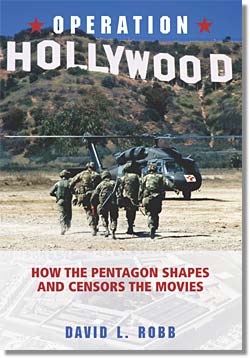
Infowars.com
Google Agrees to Censor Results in China
Associated Press | January 25, 2006
By CHRISTOPHER BODEEN
Google Inc. launched a search engine in China on Wednesday that censors material about human rights, Tibet and other topics sensitive to Beijing _ defending the move as a trade-off granting Chinese greater access to other information.
Within minutes of the launch of the new site bearing China's Web suffix ".cn," searches for the banned Falun Gong spiritual movement showed scores of sites omitted and users directed to articles condemning the group posted on Chinese government Web sites.
Searches for other sensitive subjects such as exiled Tibetan leader the Dalai Lama, Taiwan independence, and terms such as "democracy" and "human rights" yielded similar results.
In most such cases, only official Chinese government sites or those with a ".cn" suffix were included.
Google, which has as it's motto "Don't Be Evil," says the new site aims to make its search engine more accessible in China, thereby expanding access to information.
Yet the move has already been criticized by media watchdog Reporters Without Borders, which also has chided Yahoo Inc. and Microsoft Corp.'s MSN.com for submitting to China's censorship regime.
"When a search engine collaborates with the government like this, it makes it much easier for the Chinese government to control what is being said on the Internet," said Julien Pain, head of the group's Internet desk.
However, technology analyst Duncan Clark said such criticisms probably wouldn't generate problems for Google's business elsewhere, given weak responses to previous cooperation between foreign Internet companies and Chinese authorities.
Past incidents "haven't seemed to gel into anything that could dissuade Google," said Clark, the managing director of Beijing-based consultancy BDA China Ltd.
Chinese Internet users said Mountain View, Calif.-based Google Inc.'s move was inevitable given Beijing's restrictions on the Internet, which the government promotes for commerce but heavily censors for content deemed offensive or subversive.
"Google has no choice but to give up to the Party," said one posting on the popular information technology Web site PCONLINE, signed simply "AS."
Google's move was prompted by frequent disruptions of the Chinese- language version of its search engine registered under the company's dot-com address in the United States.
Government filtering has blocked access or created lengthy delays in response time.
Google's senior policy counsel Andrew McLaughlin defended the new site as better serving Chinese customers.
"In deciding how best to approach the Chinese _ or any _ market, we must balance our commitments to satisfy the interests of users, expand access to information, and respond to local conditions," McLaughlin said in an e-mailed statement, .
McLaughlin said search results would be removed based on local laws, regulations or policies.
"While removing search results is inconsistent with Google's mission, providing no information (or a heavily degraded user experience that amounts to no information) is more inconsistent with our mission," he said.
There was no indication that Google would disable access to its .com site within China.
McLaughlin said the company wouldn't host its e-mail or blogging services in China that can be mined for information about users, and would inform users if information had been deleted from searches. Such messages appeared in searches for Falun Gong and other sensitive topics.
Clark said Google likely hopes to avoid the bad publicity incurred by Yahoo last year after it provided the government with the e-mail account information of a Chinese journalist who was later convicted of violating state secrecy laws.
"They want to avoid those kinds of headlines," he said.
Google hopes the move will shore up its competitiveness against both foreign competitors such as Yahoo and domestic ones like Baidu.com Inc., a Beijing-based company in which Google owns a 2.6 percent stake. Baidu.com is currently China's most popular search engine.
China has more than 100 million Web surfers and the audience is expected to swell.
Wang Lijian, a spokesman for China's Ministry of Information Industry which oversees Internet licensing, said he had not heard of Google's decision and had no comment.
REAL SOURCE - http://www.infowars.com/articles/ps/google_agrees_censor_results_in_china.htm

CNET News
Probing IBM's Nazi connection
By Paul Festa
Staff Writer, CNET News.com
June 28, 2001, 4:00 a.m. PT
Since its publication in February, Edwin Black's book "IBM and the Holocaust: The Strategic Alliance Between Nazi Germany and America's Most Powerful Corporation" has stirred unprecedented controversy among students of the Holocaust, American enterprise and information technology.
On the book's release, Holocaust survivors filed suit against IBM for its alleged role in the Holocaust; Gypsies earlier this month threatened their own lawsuit.
Though the first suit was withdrawn and the second has yet to be filed, hundreds of critics and historians have weighed in against the company, with others coming to its defense. The range of the controversy can be gleaned from the pages of BusinessWeek alone, which in a March review excoriated the "illogical, overstated, padded, and sloppy" book for fostering "a new myth--the automated Holocaust," and in an April commentary said the "enlightening" book "should be required reading for every first-year MBA student."
At the heart of Black's argument is that information technology--in the form of IBM's Hollerith punch-card machines--provided the Nazis with a unique and critical tool in their task of cataloguing and dispatching their millions of victims.
As the book's title suggests, Black attempts to establish that IBM didn't merely vend its products to Hitler--as did many American companies--but maintained a strategic alliance with the Third Reich in which it licensed, maintained and custom-designed its products for use in the machinery of the Holocaust.
IBM has responded to questions about its relationship with the Nazis largely by characterizing the information as old news.
"The fact that Hollerith equipment manufactured by (IBM's German unit) Dehomag was used by the Nazi administration has long been known and is not new information," IBM representative Carol Makovich wrote in an e-mail interview. "This information was published in 1997 in the IEEE Annals of the History of Computing and in 1998 in Washington Jewish Week."
Watson and members of the ICC board meet with Hitler in 1937. IBM also maintains, in a February statement to which it refers most questions on the matter, that the Nazis took control of its German unit before and throughout the war, and that the company "does not have much information about this period or the operations of Dehomag." Black vehemently disputes both claims.
IBM also defended Chairman Thomas Watson for his dealings with Hitler and his regime.
"As chairman of a major international company and a strong supporter of international trade, he met and corresponded with senior government officials from many, many countries, Hitler and Germany among them, in the 1930s," Makovich wrote. "As far as we know, the nature of the contacts between IBM executives and German government officials during the 1930s were similar to those with other government officials in other countries and consistent with IBM practices in the various countries in which the company did business during that era."
CNET News.com's Paul Festa discussed the issues with Black in a recent interview.
Q: What first got you interested in this subject?
A: When I first went to the U.S. Holocaust Memorial Museum in Washington, D.C., I went with my parents, both of whom are Holocaust survivors. The first thing you see in the Holocaust museum is IBM's Hollerith tabulator. And on the front of the Hollerith is a large nameplate: IBM. For me these two words, IBM and Holocaust, did not compute.
I was literally frozen for some time staring at the machine, thinking of IBM and looking back at the map of Europe. And then it came to me. We have investigated the military intelligence, the diplomatic dispatches, the financial dealings, and the actual mechanisms of genocide, but no one has yet explored information technology. Indeed, until the current age in which we find ourselves, the Computer Age, where we have an understanding that information technology can make the pivotal difference in any campaign of peace or persecution--until the Computer Age, we could not even formulate the questions.
How did you go about researching IBM's role?
We assembled a team of 100, including researchers, historians, translators, archivists, children of Holocaust survivors, and World War II intelligence people. They worked in seven countries in some 50 archives and yielded 20,000 documents, which I organized and cross-indexed. Then some 35 historians reviewed every line of my manuscript before publication.
IBM engineered a strategic business alliance...extending right through the war that endowed the Hitler regime with the technology and the tools it needed to expedite...all six phases of Hitler's war against the Jews. But I finally assembled this dark puzzle that had eluded the 15 million people who have seen this machine in the Holocaust museum. I finally connected the dots. And those dots are that IBM engineered a strategic business alliance and joint planning program with Nazi Germany from the very first moment in 1933 and extending right through the war that endowed the Hitler regime with the technology and the tools it needed to expedite and, in many ways, automate, all six phases of Hitler's war against the Jews. Those six phases are identification, expulsion, confiscation, ghettoization, deportation and ultimately even extermination.
Five years ago I started working on this seriously and two years ago went 24/7 with the team of 100. I spent those first years in the project finding out that virtually nothing's been written on IBM's role in the Holocaust. Indeed, many of the documents and facts I discovered seem to be boring, innocuous corporate details. It's only when juxtaposed with other facts from other countries and archives that these shards of glass come together to form this heartbreaking picture window, exposing the tremendous vista of IBM's global relationship with Nazi Germany.
IBM claims that its German subsidiary came under Nazi control both before and during World War II.
We're not just talking about the German subsidiary. We're talking about the Swiss, the Swedish, the Italian, the Spanish, the Polish, the Romanian and Brazilian subsidiaries--more than 20 subsidiaries located across Europe and elsewhere. This was, in fact, a global commitment by IBM to support the Hitler machine as it conquered Europe and as it destroyed ethnic peoples: Gypsies, Jews and others.
IBM would want to say they lost control of their German subsidiaries. That's clearly false. Thomas Watson and the New York office micromanaged every aspect of their subsidiaries in Europe and especially in Germany, their most profitable foreign operation. The New York office was aware of all uses for their machines in Germany and Nazi-occupied Europe from the moment Hitler came to power in 1933 until about the fall of 1941, two years after World War II started.
Remember, IBM custom-designed the machines, custom-designed the applications and custom-printed the punch cards. There were no universal punch cards or machine wiring. Programs to identify Jews, Jewish bank accounts, barrels of oil, Luftwaffe flights, welfare payments, train schedules into camps, and even the concentration camp information--all these had to be tailored for each application.
Even after America entered the war, when the Nazis appointed the custodian, all the original IBM managers were in place. The Reich just locked the profits for a few years just as any receiver would be for any company in receivership. IBM collected all the money after the war.
Do you have examples following the start of World War II in 1939?
Look at some facts. In September 1939, Germany invades Poland. It's a bloody, heinous invasion. The rape of Poland was known everywhere. The starvation and brutalization of the Polish people was Page 1 news everywhere, including The New York Times. War had been predicted for years. It was no surprise.
On September 13, 1939, The New York Times reports on Page 1 that 3 million Jews are going to be "immediately removed" from Poland, and they appear to be candidates for "physical extermination." On September 9, the German managers of IBM Berlin send a letter to Thomas Watson with copy to staff in Geneva via phone that, due to the "situation," they need high-speed alphabetizing equipment. IBM wanted no paper trail, so an oral agreement was made, passed from New York to Geneva to Berlin, and those alphabetizers were approved by Watson, personally, before the end of the month.
That month he also approved the opening of a new Europe-wide school for Hollerith technicians in Berlin. And at the same time he authorized a new German-based subsidiary in occupied Poland, with a printing plant across the street from the Warsaw Ghetto at 6 Rymarska Street. It produced some 15 million punch cards at that location, the major client of which was the railroad.
We have a similar example involving Romania in 1941, and The Sunday Times has actually placed the IBM documents up on their Web site. You can get to the URL through EdwinBlack.com at either Reviews or Media. When Nazi Germany went into France, IBM built two new factories to supply the Nazi war machine. This is the 1941-'42 era, in Vichy, France, which was technically neutral. When Germany invaded Holland in May 1940, IBM rushed a brand-new subsidiary into occupied Holland. And it even sent 132 million punch cards in 1941, mainly from New York, to support the Nazi activity there. Holland had the highest rate of Jewish extermination in all of Europe; 72 percent of Jews were killed in Holland, compared to 24 percent in France, where the machines did not operate successfully.
What exactly did the Nazis need IBM's equipment for?
When Hitler came to power in 1933, his desire to destroy European Jewry was so ambitious an enterprise, it required the resources of a computer. But in 1933 no computer existed. What did exist was the Hollerith punch-card system. It was invented by a German-American in Buffalo, New York, for the Census Bureau. This punch-card system could store all the information about individuals, places, products, inventories, schedules, in the holes that were punched or not punched in columns and rows.
This is the same technology we saw in Florida in the presidential election. The Hollerith system reduced everything to number code. Over time, the IBM alphabetizers could convert this code to alphabetical information. IBM made constant improvements for their Nazi clients.
American entry into the war
What was IBM's involvement with the Nazis once America had entered the war?
In October of '41, the whole world knew America was about to enter the war. We had been preparing to enter since 1933, debating it. War fever became most intense from 1937. The question was always, "Can we stay out of the war?" No one knew exactly when. Our entry was of course precipitated by the bombing of Pearl Harbor on December 7. Shortly before that, with sudden new trading-with-the-enemy regulations in force--this is October 1941--Watson issued a cable to all IBM's European subsidiaries, saying in effect: "Don't tell us what you're doing and don't ask us any questions." He didn't say, "Don't send machines into concentration camps." He didn't say, "Stop organizing the military forces of Nazi Germany." He didn't say, "Don't undertake anything to harm innocent civilians."
IBM would want to say they lost control of their German subsidiaries. That's malarkey. They never lost control. He then bifurcated the management of IBM Europe--one manager in Geneva, named Werner Lier, and the other one in New York, in his office, named J.L. Schotte. So all communications went from Switzerland to New York. Ultimately there was a Hollerith Department called Hollerith Abteilung--German for department--in almost every concentration camp. Remember, the original Auschwitz tattoo was an IBM number.
Watson stopped all communications with Nazi Germany directly. And in point of fact, he danced on the head of a pin to obey U.S. law. It was the legal participation in genocide--legal because it was pursued through foreign subsidiaries from 1942 to 1945.
Do you contend that IBM played a role beyond the concentration camps--that it was part of the German war effort against the U.S. and other allies?
IBM's role in organizing the German war machine is well documented in the book. IBM put the blitz in blitzkrieg. The whole war effort was organized on Hollerith machines from 1933 to 1945. This is when information technology comes to warfare. At the same time, IBM was supporting the entire German war machine directly from New York until the fall of 1941, and through its overseas subsidiaries thereafter, Big Blue was supporting the Allied war machine to the hilt.
IBM was in charge of the draft. IBM was one of the few outside the Pentagon who knew the exact date of the Normandy invasion; they were calculating the weather. IBM machines broke the Enigma Code. Much of what could do with a computer during the late 20th century could be done with Hollerith machines, but slower.
Describe your relationship with IBM as you were researching this book.
When I first contacted IBM, I said I would share all my documentation with them and, in exchange, I'd like to see their archive. Originally, I was approved. The PR people overruled the archivist, Paul Lasewicz. Then a group of historians wrote to IBM CEO Lou Gerstner, demanding I be allowed access and calling IBM's refusal an obstruction of Holocaust history.
Rather than destroy the documents, IBM said it was giving them to "an academic institution" for study. But where did these documents end up? Not the Holocaust Museum in Washington, not the Center for Jewish History in Manhattan, not the American Jewish Archives in Cincinnati. An IBM PR man gave them to New York University, to a Biblical archaeologist. They gave them to professor Lawrence Schiffman, a Dead Sea Scrolls expert. He had six boxes in his closet, unaware of what was in them. But he was familiar with my prior Holocaust work and immediately arranged to let me see the materials.
I also arranged to view documents in Stuttgart, and IBM blocked that and closed the facility the day I got there. When word got out about my book they transferred those Stuttgart documents to an archive in Germany, but they can't be seen until some elaborate inventory is completed.
IBM still refuses to open archives concerning France, Holland, Brazil, Poland, Italy and Spain, and other units. In other words, all their archives are still closed. As I told IBM corporate PR, "Make me work hard, make me work harder, I will get all this information."
Is your research ongoing, or is this case closed as far as you're concerned?
I'm constantly getting new information. Just a few days ago, I received extraordinary documents from Poland about something called the Hollerith Gruppe. These were unveiled on June 25 to scholars at the Leo Baeck Institute in New York. The Hollerith Gruppe organized every single aspect of Polish existence and Jewish existence. These Krakow machines depended upon a guaranteed supply of millions of punch cards. The Hollerith machines did far more than identify people.
My book is not about census. The machines also ran the railroads. They organized the "extermination by labor" campaign, where people were worked to death based on their job skills and location. Slaves were shuttled from place to place based on Hollerith cross-tabulations. Millions and millions of people went through Nazi concentration camps during the 12-year Reich. But at the height of the Hitler regime, the entire camp capacity was three to five hundred thousand. That's extraordinary traffic management.
After publication, we also obtained the names of prisoners IBM trained to work in the extermination by labor program, and we discovered that a two-story building at Dachau still standing is the Hollerith Building where at least two dozen machines were stationed. Really, there is quite a bit, and it all only deepens the documentation.
IBM: Muted response
How has IBM responded to your book?
With virtual silence and an initial press release designed to confuse people. First the company said they hadn't read the book, but at the same time it said there was nothing new in the book. Can't have it both ways. My book was five weeks on the best-seller list, and they said they hadn't read it almost two months after publication. And yet IBM PR declined to make a statement when asked by Public Radio in Washington. That initial statement, by the way, claimed historians have known about this for decades. That's not true. There is not a single book or scholarly paper anywhere in existence that even mentions the Hollerith Department in concentration camps. This murder system was unknown.
IBM put the blitz in blitzkrieg. The whole war effort was organized on Hollerith machines. IBM PR also said the company lost control of their German subsidiary when the Nazis came to power. That's completely false. The book quotes the incidents chapter and verse.
The architect of IBM's denial of Holocaust involvement is PR manager Carol Makovich. She has developed a carefully crafted, confidential, 12-page memo that she faxes or e-mails to reviewers and writers. CNET received a copy. There are a few elderly historians who are skeptical about the book. They don't understand the power of relational databases, and information technology confuses them. IBM quotes this handful, hoping that message will influence reporters on deadline. We have indeed received about six negative reviews in newspapers, but also about 380 positive ones through the world. At least 100 of these laudatory reviews are up on my Web site. IBM won't even deny a single fact in my book. They just hope the subject will go away. It won't.
On Holocaust Day, in April of this year, an article ran in about 20 papers across the U.S. saying that IBM must apologize, that IBM should learn from its past and open archives. But IBM refuses to open the archives and confront its own past. I think IBM's corporate PR has given ruinous advice to IBM about handling this. No one wants to blame the current IBM for what happened 60 years ago. Why not just come clean and move on?
What do you think accounts for IBM's association with the Nazis? What was their motivation?
It was never about the Nazism. It was never about the anti-Semitism. It was only about the money. They didn't hate Poles when they opened up a subsidiary in war-torn Poland. They didn't hate the Dutch when they opened up the subsidiary in Holland just before the Nazis moved in, or the French when they ramped up the subsidiary in occupied France. They didn't hate the Brits or the Americans when Hollerith machines were used to target the V2 rockets. It wasn't personal--it was just business.
Why single out IBM out of all the other companies, American and otherwise, that did business with the Nazis?
I haven't singled anyone out. IBM was virtually the only supplier of punch-card technology. There were many people supplying oil, supplying weapons. It wasn't me who singled IBM out. IBM distinguished itself as the dominant provider of this special technology and sued any company which tried to horn in on their profit stream. During the war, IBM litigated against Bull in France, Powers in Europe, and even sued the German printer Euler in 1942, trying to stop them from printing cards.
IBM is circulating a review by The New York Times that argues you failed to "demonstrate that IBM bears some unique or decisive responsibility for the evil that was done." What's your response to that statement?
The gentleman who wrote that review is a social commentator--he's not a historian. He just wasn't sure. No problem. But some 380 reviews thus far have said that we have indeed made our case, and many historians and other experts use the term "ironclad" and "incontrovertible." In fact, 35 leading historians and Holocaust experts unanimously endorsed the book and its findings on the date of publication. And their comments are up on my Web site. I wonder why IBM doesn't circulate the reviews of Newsweek, The Washington Post, Midstream, The Sunday Times, and dozens more. It's sad.
IBM only had a unique and decisive role for what they were involved in. There was a distinct difference between trading with the enemy, which many companies engaged in, and the strategic alliance and joint planning campaign that IBM engaged in. For example, Standard Oil planned and built a complete petroleum supply line for Nazi Germany and supplied it well into the war--throughout the war. But Hitler knew about the combustion engine and about fuel before Standard Oil ever sold him gasoline. A British company was selling uniforms to the Third Reich. Hitler knew how to sew a uniform.
IBM did more than just sell equipment. Watson and IBM controlled the unique technical magic of Hollerith machines. They controlled the monopoly on the cards and the technology. And they were the ones that had to custom-design even the paper forms and punch cards--they were custom-designed for each specific purpose. That included everything form counting Jews to confiscating bank accounts, to coordinating trains going into death camps, to the extermination by labor campaign.
That's why even the paper forms in the prisoner camps had Hollerith notations and numbered fields checked. They were all punched in. For example, IBM had to agree with their Nazi counterparts that Code 6 in the concentration camps was extermination. Code 1 was released, Code 2 was transferred, Code 3 was natural death, Code 4 was formal execution, Code 5 was suicide. Code 7 was escape. Code 6 was extermination.
All of the money and all the machines from all these operations was claimed by IBM as legitimate business after the war. The company used its connections with the State Department and the Pentagon to recover all the machines and all the bank accounts. They never said, "We do not want this blood money." They wanted it all.
What's your opinion of the various lawsuits that have been brought against IBM on behalf of Holocaust survivors?
I read about seven such lawsuits--in the U.S., Poland, France, Switzerland. If they all disappeared it would be fine with me because I believe that IBM's responsibility is not a matter of money reparations, it's a matter of revealing its innermost secrets. But IBM prefers hiding behind the image of defending lawsuits to coming clean about their documentation.
Everyone approaches the Holocaust in their way. Some prefer memorials, others ignore what happened and wish it would go away, and some prefer lawsuits. I'm an investigative reporter and believe the best reparation is illumination. Interestingly, the reason the Gypsies said they sued was that IBM has continuously ignored their requests for information. IBM has never apologized and never opened up their archives. The company is arrogant with all who demand answers, and then these people turn to the courts. Once again, someone is giving IBM terrible advice.
SOURCE - http://news.com.com/2009-1082-269157.html
(...)
BONUS: Chin-checkmate... 
NewsMax.com
Americans Fund Slave Labor
Wes Vernon, NewsMax.com
Thursday, Jan. 9, 2003
WASHINGTON – Americans during the past Christmas season shelled out millions for merchandise made by slave labor. It was “the season to be merry,” as Americans unwittingly snapped up bargains on the backs of prisoners whose only crime was to question the authority of their communist masters. Often they were beaten and literally worked to death without adequate food or health care.
Chinese dissident Harry Wu has exposed the goings-on behind the “Bamboo Curtain” in the book “Troublemaker,” published by NewsMax.com.
It is against U.S. law to sell goods made by slave labor. Wu shows how the Chinese dictatorship hides the fact that slave labor makes much of what you buy.
It’s that “Made in China” label you see on sweaters, hardware, toys or whatever at your neighborhood shopping mall. At least at the mall, the shopper can look for the label and decide whether to buy. What frustrates some shoppers is that it’s often difficult if not impossible to find anything they want that was not made in China by slave labor.
And it’s getting worse. The author cites official reports showing that China’s exports to the United States in 1985 were $3.8 billion. By 1994, China was exporting $31 billion to America, while the U.S. was selling only $9 billion in goods and business to China.
That money is aiding China in its military buildup to crush the United States. The plot has been fully documented in the book “Unrestricted Warfare: China’s Plan to Destroy America,” also available from NewsMax. That book is the Chinese army's secret strategy, translated from the original Chinese documents, written by a top army official.
Wu compares the Chinese slave camps to the Nazi concentration camps (more on that in a future report), all to produce goods for the American market. The communist regime in Beijing is using the profits from American shoppers to build the military machine to destroy the freest society on Earth — a prosperous society enjoyed by those same American consumers.
The authorities have names for the stages in the slave camps. Harry Wu went through three stages, first for 19 years and then a second time when he risked his life to go back to China so he and his associates could document (often through film smuggled out of China) the stomach-turning conditions to which the Chinese have subjected their slave laborers.
# 1. Reform through labor (laogai).
# 2. Re-education through labor (laojiao).
# 3. Forced labor placement (jiuye).
Wu calls the entire system “laogai.” He estimates 50 million prisoners have been sent to the system since the communists grabbed power in China in 1949.
Laogai – the phrase burns Wu’s soul, makes him crazy, makes him “want to grab Americans and Europeans and Australians and Japanese by the shirt and scream, ‘Don’t you know what’s going on over there?’ I want the word ‘laogi’ to be known all over the world in the same way that ‘gulag’ has become synonymous with the horrors of Stalin’s prison system.”
Wu witnessed two Public Security officers beating a prisoner with a construction beam. The rumble of mine cars drowned his screams of pain. “In the dark pits,” he writes, “the dust billowed from the face of the mine, where men cut the coal. The floor of the mine was wet, with an evil odor. The prisoners bent forward, knowing they would have to work for twelve hours, until they had achieved their daily quota.”
Soon, Wu thought, he would be back in California “with my nice shower, the fresh hot water, the soap, the thick towel, but these guys were condemned to live like this for the rest of their lives … minute by minute, day by day, year by year.”
And remember, America, you’re paying the bill for this. Those millions of freedom-loving Chinese are forever living under the jackboot of butchers who are building a military machine to kill millions of us.
Is this living hell comparable to the infamous Nazi concentration camps? According to Wu, you bet it is. NewsMax deals with that next.
[cont'd...]SOURCE - http://www.newsmax.com/archives/articles/2003/1/8/191237.shtml



























